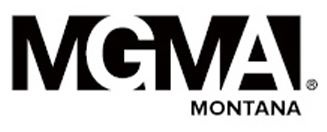| Speaker: Stu Schaff, FACMPE, FHFMA What's My Job, Really? Setting Clear Expectations For Docs Stu Schaff is an Executive Advisor, speaker, and expert in medical group leadership. For nearly two decades, he has partnered with leaders from over 100 healthcare organizations across the United States, like Dignity Health and Trinity Health, to address challenges around physician performance, recruitment, retention, and dissatisfaction with existing compensation plans. Stu is a Fellow of the American College of Medical Practice Executives and a Fellow of the Healthcare Financial Management Association (HFMA). He has been invited to speak to thousands of healthcare leaders at over 30 events hosted by the Medical Group Management Association (MGMA), HFMA, and other influential groups. Stu's insights have also been featured in multiple podcasts and in widely read publications like hfm and Becker’s Hospital Review. As a trusted advisor, Stu helps medical group leaders design and implement optimally aligned physician compensation strategies that improve patient access, strengthen practice financials, and enhance their ability to recruit, retain, and engage physicians, putting them in the best position to improve the health of their communities. |
Summary:
Given the well-documented gap between the supply of physicians and the demand for their services, increasing administrative burdens, and the strain of a global pandemic, it is no wonder that many doctors report dissatisfaction with their careers.
There is another major but often overlooked contributor to physician burnout: a lack of clear expectations. For most physicians, the job description is usually little more than “Be a good doctor.” Then collections, WRVUs, overhead expenses, and other aspects of the job come into play and the relationships between physicians and administrators turns adversarial. Unlike the systemic issues mentioned above, individual medical practices can do something about this.
Stu Schaff will show participants how they can establish clear expectations for physicians within their own practices, using examples from actual academic and community-based practices. He will also demonstrate specific ways that participants can incorporate best practices for communicating those expectations, regularly reinforcing them, and effectively holding physicians accountable to them, with the goal of improving morale and engagement.
Learning Objective 1: Use a step-by-step framework to clearly articulate expectations for employed physicians, specific to their medical practice’s needs
Learning Objective 2: Outline clear expectations to foster a culture of accountability, leading to better financial and strategic outcomes for all
Learning Objective 3: Spot and correct misalignment between expectations and physician compensation models

